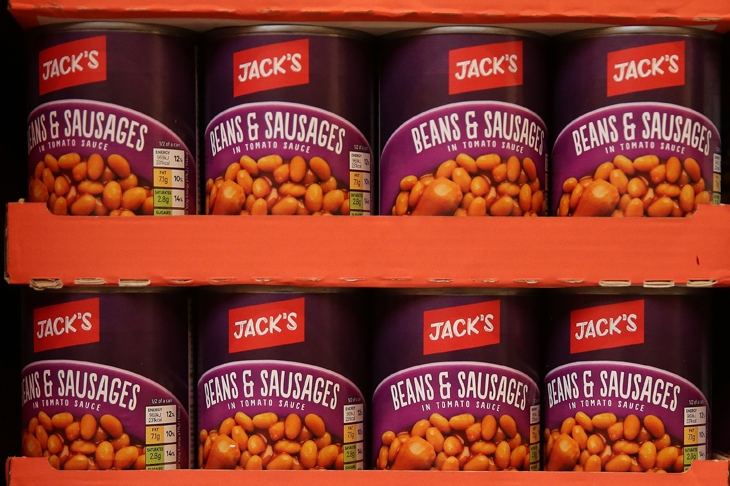Supermarkets have always moved with the times. After the recession we wanted affordable luxury, so we got M&S’s ‘Dine in for two’ and its various imitators. These promised us a restaurant-quality meal and a nice bottle of sauvignon blanc for a tenner.
Well, now the times they are a-Brexit, and retail giants are adapting accordingly. Last week Tesco opened Jack’s. Partly it’s a response to the explosive growth of German rivals Aldi and Lidl. Partly it’s an attempt to create a new, patriotic shopping experience for a nation trying to go its own way.
Tesco bosses swear Jack’s is ‘nothing to do with Brexit’. But the clue’s in the name. It’s supposedly an homage to Tesco’s founder, Jack Cohen — but it’s no accident that in-store, you’ll find Union Jacks everywhere, as well as signs telling you that ‘every drop of fresh milk is British’ and ‘eight out of ten products are British’.
How true that is remains debatable; Tesco has found itself in trouble before over its ‘fake farm’ brands, with bucolic names such as Woodside Farms pasted on the shop’s cheap ranges of fresh produce.

Get Britain's best politics newsletters
Register to get The Spectator's insight and opinion straight to your inbox. You can then read two free articles each week.
Already a subscriber? Log in








Comments
Join the debate for just $5 for 3 months
Be part of the conversation with other Spectator readers by getting your first three months for $5.
UNLOCK ACCESS Just $5 for 3 monthsAlready a subscriber? Log in